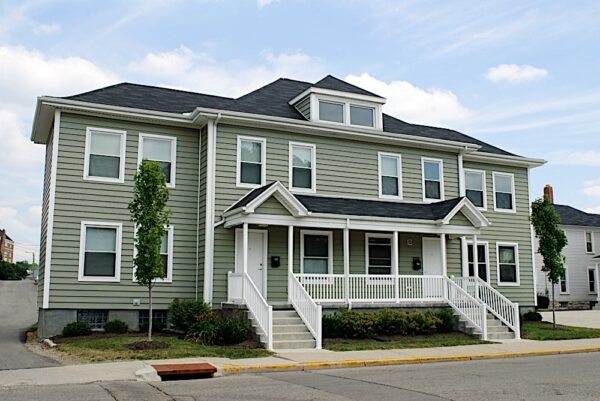Two for one. That’s what you get when you buy a duplex: two units for the price of one house. But does this mean it’s better than buying a single-family home?
If you’re a first-time homebuyer, you may have asked yourself this question. Perhaps a family member told you to buy a duplex so you can rent out the other unit and make some extra income on the side.
Or maybe you got interested because you learned about it from a real estate investing podcast. Many people are looking for duplexes and apartments for rent in Sydney so that you can rent them out. Whatever the case, this article will discuss the pros and cons of buying a duplex over a single-family house, so you can make a more informed decision when it comes time for you to purchase real estate.
What is a Duplex?
First, let’s explain what a duplex is. A duplex is a house with two equal-sized units. Typically, the units are side by side and share a wall.
But sometimes, they are arranged vertically so one unit sits atop the other. In either case, each unit has its own separate entrance.
Benefits of Buying a Duplex
Here are the benefits of buying a duplex property:
- Leverage residential financing. Duplexes still qualify for residential financing with low down-payment requirements. This means you can buy one with a VA loan for 0% down, or an FHA loan for as little as 3.5% down. Also, many lenders allow you to factor projected rental income into your loan application so you can qualify for a larger mortgage.
- Generate cash flow. Renting out one or both units gives you extra income. And if the rental income exceeds your property expenses, you’ll generate positive cash flow. You can use the extra cash to cover expenses or invest in more real estate.
-
- Weather vacancies more easily. When you have two units, vacancies don’t hurt your bottom line as much as they would with a single-family home. You still have the other unit to bring in value (via rental income or living in it yourself). And it’s unlikely both units will ever be vacant at the same time.
- Build equity faster. With a duplex, you can generate more income to put toward your mortgage. That way, you build equity in your property faster, and can use the duplex as a stepping stone to buy a bigger structure later on. This is a great way to fast-track your way to long-term wealth.
- Write off property expenses. The government treats investment properties like a business. So if you rent out part or all the duplex, you can write off routine property expenses such as maintenance, repairs, and even depreciation.
- Manage tenants more easily. Having two units at the same location means less travel between you and your tenants. Drive to one place instead of two—or not at all if you live in the other unit. Then, if you buy more rental units later, you can outsource the property management tasks to make your job even easier.
Drawbacks of Buying a Duplex
That said, duplexes also have their drawbacks:
- Pay more up front. Since the average duplex is larger than the average home, you’ll likely pay more up front to acquire the duplex. But again, you can recoup the higher price with the returns it generates over time.
- Be geographically limited. There are far fewer duplexes than single-family homes. That means when you shop for one, you won’t have as much selection with regard to the location. By the same token, you’ll have less location diversification across your rental units. (If you bought two single-family houses in separate neighborhoods, for example, you would benefit from two different rental markets.)
- Work as a landlord. As the landlord, you’re responsible for property taxes, repairs, maintenance, homeowner’s insurance, and other property expenses. It’s definitely not for everyone. Unless you outsource the management of the property, you’ll have to be on call 24/7 for your tenants. And of course there’s no guarantee they’ll always pay on time or treat your property well.
- Pay more in property insurance. It costs 15% to 25% more to insure a duplex than to insure a single-family house.
- Wait longer to resell. Duplexes tend to appreciate more slowly than single-family homes. So you’ll have to wait longer to sell a duplex and make a profit. There’s also less demand for duplexes generally than for single-family homes. So you may have to hold onto your duplex for a while before you find a buyer.
Final Tips
Ultimately, buying a duplex can be a great way to get into real estate investing. But you need to be okay with the challenges that come with it. The best thing to do is play it safe and plan for the worst.
For example, make sure your income is enough to cover the mortgage of the duplex even if you might suffer a vacancy. That way, you’re not setting yourself up for a potential financial crisis.
Make sure you have a good tenant management system in place before you sign the lease. You should have a way to screen tenants, collect rent, send reminders and notices, and initiate an eviction in worst-case scenarios.
If you can set all that up before you buy a duplex, you’ll be well on your way to generating cash flow and building wealth in real estate. Just don’t overleverage yourself, and learn from your mistakes as you go!





